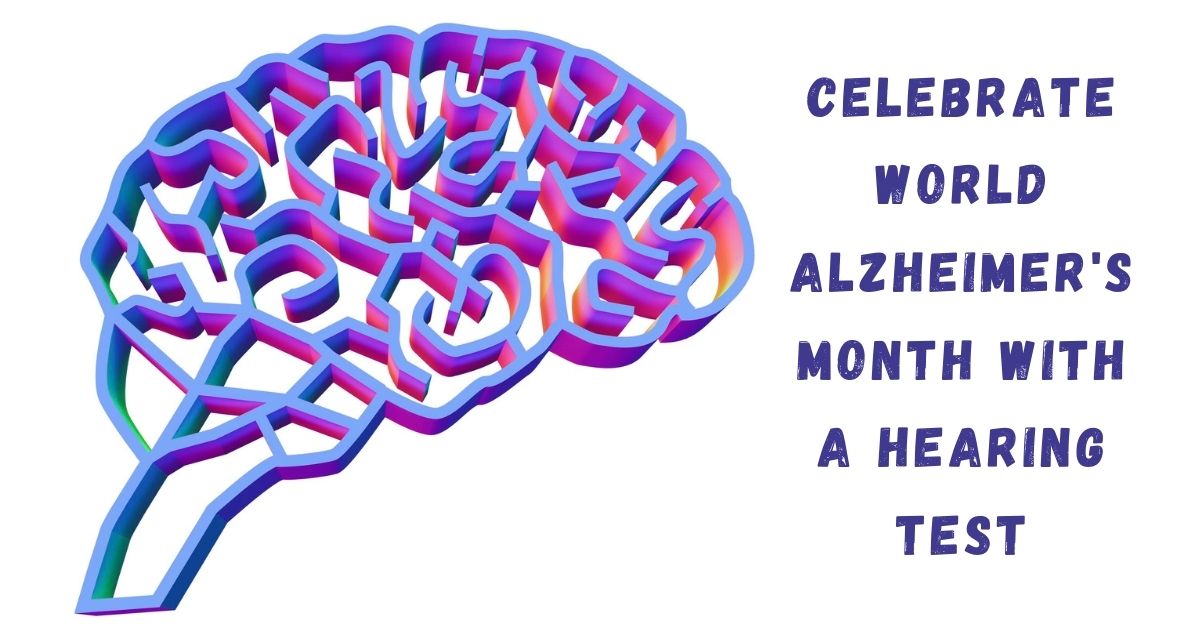- Common Hearing Aid Problems & How to Fix Them - June 14, 2021
- Why People Avoid Treating Hearing Loss — and Why You Should Schedule a Hearing Test! - May 21, 2021
- Common Hearing Aid Problems & How to Fix Them - May 14, 2021
According to the Alzheimer’s Association, the number of people living with Alzheimer’s is estimated to more than double by 2050: increasing from 5.8 million to 13.8 million in the U.S. alone. This staggering growth highlights the importance of World Alzheimer’s Month which is every September! Committed to raising global awareness about this chronic disease, this month is also about taking action to prioritize your health.
Alzheimer’s is one type of dementia which is characterized by cognitive decline – reduced ability to remember, solve problems, make decisions, focus etc. There are several types of dementia including: Parkinson’s, Huntington’s, Lewy body, and vascular. Alzheimer’s is the most severe form as well as the most common, accounting for 60-80% of all dementia that people experience. It is an incurable disease that shortens life span and while there is ongoing research to develop a cure, there is emphasis on identifying contributing factors that can delay or prevent Alzheimer’s. One factor that has been established is hearing loss, another chronic medical condition that significantly impacts older adults.
Hearing Loss: Symptoms & Impact
1 in 8 people have some degree of hearing loss. Impacting over 40 million people, impaired hearing is the third most common chronic health condition that older adults live with. Hearing loss can be caused by a variety of factors: existing medical conditions (hypertension, diabetes, cardiovascular disease etc.), environmental exposure to loud noise, genetic history, and aging. Impairment to hearing often occurs gradually and can be mild to severe, producing numerous symptoms including:
- A buzzing, ringing, humming, or clicking like noise in one or both ears (known as tinnitus)
- Increasing the volume on electronic devices (smartphone, speaker, television)
- Asking others to speak loudly and/or slowly
- Sounds are muffled and hearing distinct words is challenging
- Increased difficulty hearing in environments with background noise
- Frequently needing others to repeat themselves
- Ability to hear better in one ear over the other
- Reading mouths to identify words
Experiencing these symptoms can make having conversations incredibly challenging. Hearing loss strains communication which we rely on to navigate daily life. This can impact job performance, relationships, social life, and participating in activities. Untreated hearing loss can worsen impairment and contribute to the development of other medical conditions including cognitive decline.
Alzheimer’s & Hearing Loss
Research has established a link between Alzheimer’s and hearing loss which share a few similarities including:
- Age is a strong predictor, as older adults are more impacted
- 50% of adults 75 and older have hearing loss
- 80% of adults with Alzheimer’s are 75 and older
- Certain symptoms: confusion, fatigue, stress, strained communication
- Both conditions are incurable
Studies show that hearing loss increases the risk of developing dementia and that the more profound the impairment, the likelier cognitive decline is. A significant 2019 study showed that cognitive decline was:
- 30% higher among people with mild hearing loss
- 42% higher among people with moderate hearing loss
- 54% higher among people with severe hearing loss
These significant findings reveal a strong correlation between both conditions and also establishes hearing loss as a contributing factor.
Taking a Hearing Test
One major way you can reduce your risk of developing Alzheimer’s is by having your hearing assessed. Hearing tests are relatively easy and involve a painless process conducted by a hearing healthcare expert. Your hearing is measured in both ears by responding to sound played at different frequencies (by a machine) and indicating what you can hear. Hearing tests determine any impairment, the degree, and specific type of hearing loss you may be experiencing.
Fortunately, there are effective ways to treat hearing loss that increase one’s ability to hear. The most common treatment is hearing aids which are electronic devices designed to absorb, amplify, and process sound. Similar to most electronics today, hearing aids have benefited from technology and are more innovative than ever. There is a wide range of options with various features that are designed to maximize user experience and be easily integrated in your life.
Celebrate World Alzheimer’s Month by scheduling an appointment for a hearing test today. This can drastically improve your health and quality of life!

